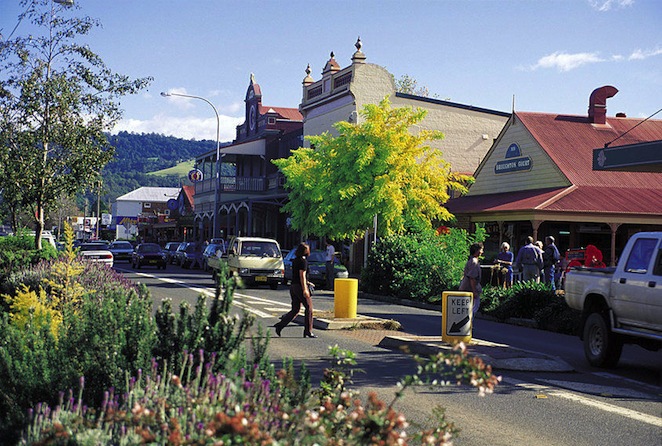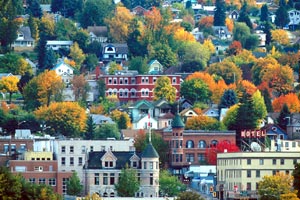Bulgaria
Find Eduxpress Programmes
In spite of Bulgaria being a less popular study destination, students receive high-quality education. Increasing mobility and links between Bulgarian higher education systems and universities around Europe provide great diversity and lead to a strong foundation for a future career.
Bulgaria's higher education system was reorganized in the mid-1990s, after the fall of the communist regime. Between 1995 and 2002, the number of university graduates increased from 33,000 to 50,000. In 2002, 42 institutions of higher learning were available in the country, with 215,700 students enrolled. Since 2007, Bulgaria is a member of the European Union and Bulgarian Higher Education degrees are fully recognised in EU member states.
Presently, higher education institutions include Universities, Colleges and Specialized Education Schools. All institutions of Higher Education in Bulgaria are autonomous and responsible for programme design and quality. Almost all universities in the country have Bulgarian accreditation and some have double accreditation from foreign institutions.
Studying and living in Bulgaria is very affordable, especially if you come from a more expensive country or if you compare Bulgaria to other top study destinations, like the UK, the US, Canada, or Australia.
At public universities, internationals pay between 300 and 3,850 EUR per year for tuition. Disciplines like Medicine and Pharmacy are the only exceptions, often costing up to 7,000 EUR per year. In terms of living costs, you should be perfectly fine with a budget of 300–500 EUR per month.
Bulgaria is a great destination for business-oriented students, who want to create their own start-ups and make a difference in the world. Here are some of the main reasons why you might want to study and start a company here:
From the wonderful beaches to the centuries-old buildings, there are plenty of things to see and do while studying and living in Bulgaria. Some of the top places we recommend visiting are: the Sunny Beaches, the Rila Monastery, the Saint Aleksandar Cathedral, the Seven Rila Lakes, Vitosha, the Tsarevets Fortress, Cape Kaliakra, etc.
Let's take a closer look at tuition and living expenses in Bulgaria:
At Bulgarian universities, tuition fees vary based on your nationality and the type of degree you want to study. On average, international students pay:
Disciplines like Medicine, Veterinary Medicine, and Pharmacy are more expensive, costing between 4,000 and 7,700 EUR per academic year.
Private universities usually charge higher tuition fees.
Students need between 300 and 500 EUR per month to cover their costs of living in Bulgaria. Their lifestyle and the type of accommodation are the most important factors influencing the overall budget.
Here's a breakdown of average living expenses in Bulgaria:
The Republic of Bulgaria is located in South-Eastern Europe on an area of 110,910 sq. km. Bulgaria occupies a portion of the eastern Balkan peninsula and shares a border with Turkey and Greece to the south, Macedonia and Serbia to the west, Romania to the north, and the Black Sea to the east. The coastline has a length of 354 kilometres. The most notable geographic features include the Danubian Plain, the Balkan Mountains, the Thracian Plain and the Rhodope Mountains.
The capital, Sofia, lies in the western region of the country. Other major cities include Plovdiv and Varna.
The first unified Bulgarian state dates back to 681 CE, which functioned as a cultural hub for Slavs during the Middle Ages. With the downfall of the Second Bulgarian Empire in 1396, its territories came under Ottoman rule for nearly 500 years. In 1946, Bulgaria became a single-party socialist state. In December 1989, Bulgaria transitioned from a communist to a democratic state. Bulgaria entered the EU on 1 January 2007. In contrast to some Euro-zone states, Bulgaria does not have huge international debts. The country still ranks as the poorest member state of the EU, but standards of living have started to rise. Unfortunately Bulgaria has been affected by high profile corruption scandals especially regarding the Interior Ministry, which is severely hindering Bulgaria's progress and development.
Bulgaria is a parliamentary republic with a high degree of political, administrative, and economic centralisation. The strongest sectors of the economy are heavy industry, power engineering, and agriculture. The national currency is the Leva.
Bulgaria has a dynamic climate, at the meeting point of Mediterranean and continental air masses. This results in continental-mild summers and cold, snowy winters.
Bulgaria gave the world the Cyrillic alphabet, the second most-widely used alphabet in the world, which dates from tenth century AD.



